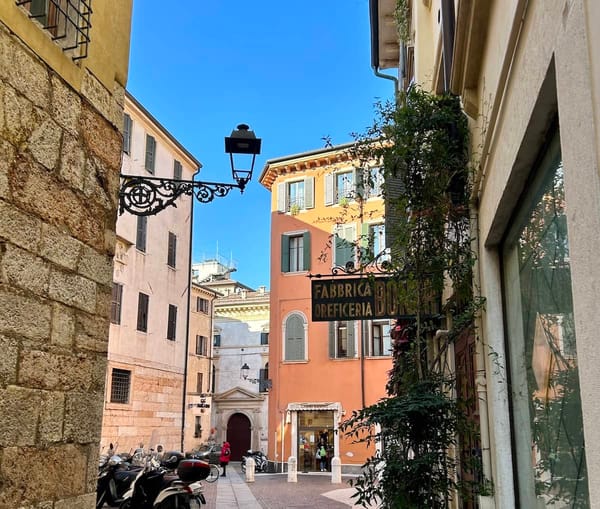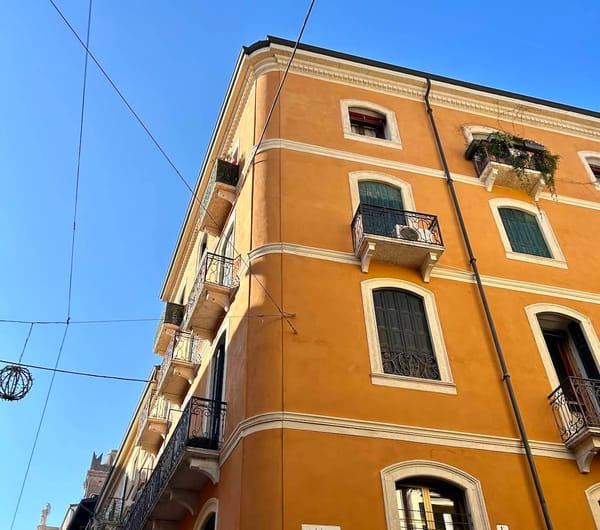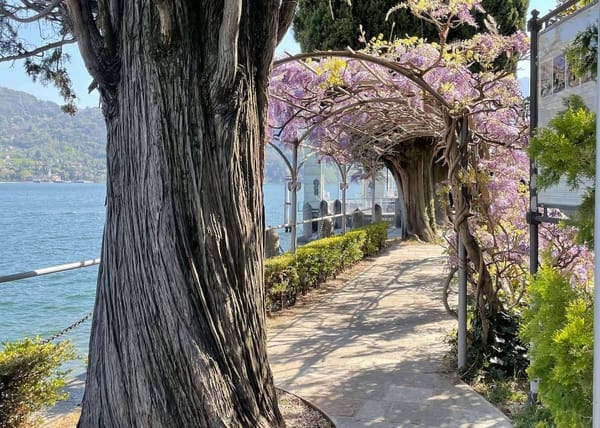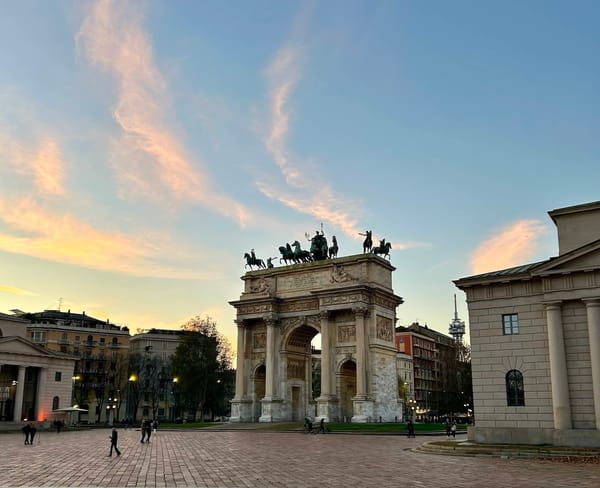How To Get Your Master's Degree In Italy
Costs, requirements, and English-speaking options for graduate school in Italy.
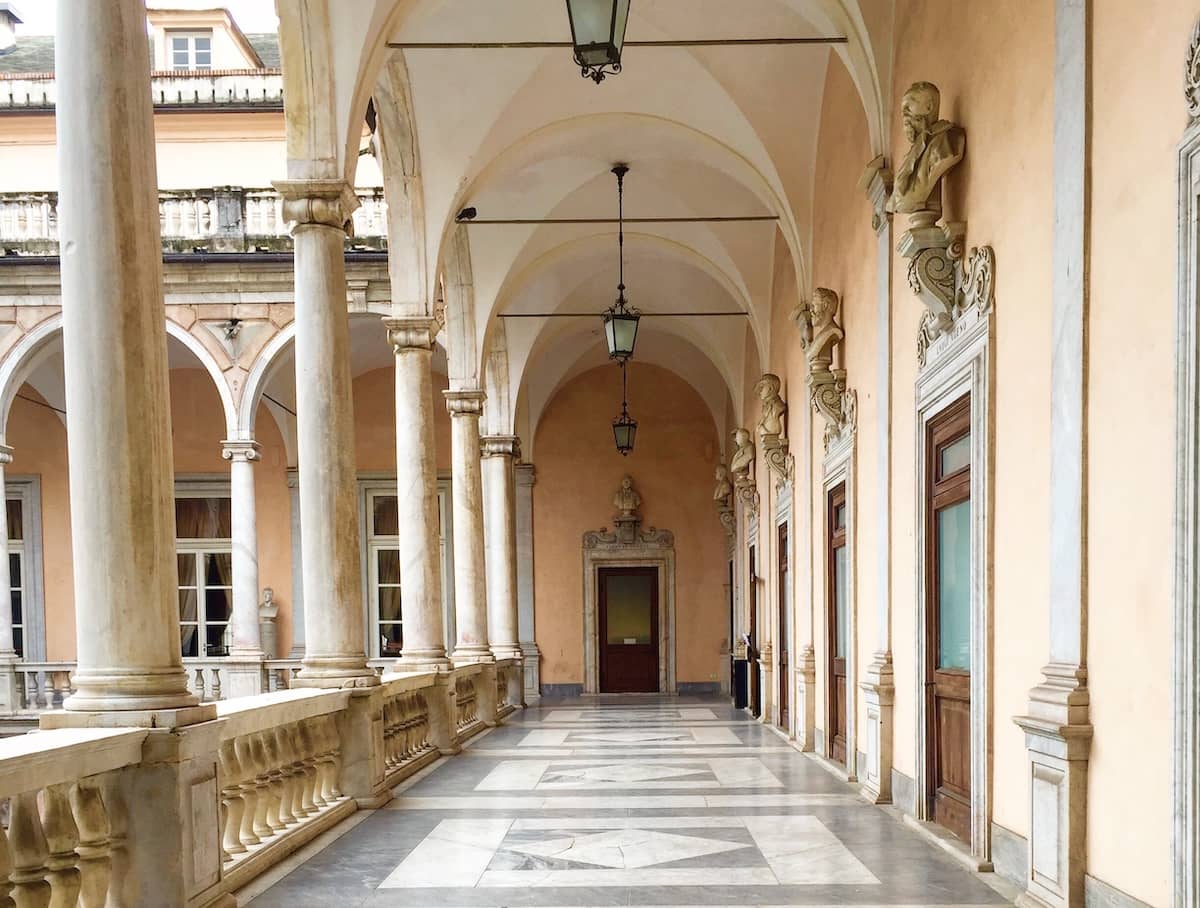
- English Master Degrees in Italy
- Requirements for a Master's Degree in Italy
- Is Getting a Master's Degree in Italy Free?
Some of the links in this post are affiliate links. If you make a booking through these links, I may earn a small commission at no extra cost to you.
Italy is home to some of the oldest universities in the world, and the Italian higher education system is renowned for turning out Nobel laureates and critical thinkers. Tack on the country's rich cultural history and relatively low cost of living, and it's no wonder why so many international students choose to pursue graduate school in Italy.
English Master Degrees in Italy
Despite the stereotype that Italians don't speak English, Italy has an abundance of university programs that are taught entirely in English and are suitable for international students.
It's not difficult to find a Master's course in Italy that is taught in English. If you Google your field of interest, you'll likely find several English-speaking graduate programs scattered throughout the country, and you might find undergraduate programs as well.
Plenty of young Italians speak English; don't believe the stereotype!
Requirements for a Master's Degree in Italy
Each Master's degree course in Italy has unique requirements as dictated by the university. However, below are three basic admission requirements for every English-speaking graduate program in Italy.
Relevant Bachelor's Degree
When applying for a Master's degree in Italy, you must ensure that your Bachelor's degree was administered by an accredited university. The Bachelor's degree should be equivalent in length to an Italian Bachelor's degree, which is typically 3 years of full-time study.
In the vast majority of cases, your Bachelor's degree must closely mirror the Master's degree that you're applying for.
It's uncommon in Europe to apply for a Master's degree in a field that is unrelated to your bachelor's degree.
For example, if you have a bachelor's degree in Biology but have worked as a software engineer for five years, you won't be eligible for a Master's degree in Computer Science. European universities are a bit rigid in this way—work experience isn't viewed as a valid replacement or supplement for unrelated bachelor studies.
If you want to pursue a Master's degree in a field unrelated or loosely related to your bachelor's degree, I recommend applying to private universities or looking outside of Italy.
Proof of English or Italian Proficiency
If you are applying for an English-speaking Master's program, you must upload proof that you've reached level B2 or higher in English.
Native English speakers and those who have previously attended university in an English-speaking country are often exempt from this requirement. When I applied for a Master's program at the University of Trento, I simply had to upload a self-certification stating that English is my first language.
If you are applying for an Italian program, you must upload proof that you have reached level B2 or higher in Italian. You should be able to write and speak Italian like a native speaker.
Letter of Recommendation
Most Italian Master's programs require at least one letter of recommendation, preferably written by a university professor or a company manager who has worked with you for an extended period. Be sure to check the university's website for a preferred template or any specific requirements.
Is Getting a Master's Degree in Italy Free?
Unlike in Germany or Norway, attending an Italian university is not free. However, the tuition prices are very affordable, and nearly every applicant can apply for financial support. Many universities also offer scholarships or waive tuition fees entirely for candidates with high marks in their undergraduate courses.
For EU/EEA Applicants: Calculate your ISEE (Equivalent Economic Situation Indicator)
The Italian ISEE, which stands for Indicatore della Situazione Economica Equivalente, is a score that Italy uses to determine which students are eligible for needs-based financial aid.
All EU citizens and permanent EU residents can calculate an ISEE value and apply for financial aid. If you have been living and working on your own for at least two years, your ISEE value will be calculated based on your personal financial situation rather than that of your family.
To learn more about how the ISEE value is calculated for international students, review this document from the University of Padova.
While not required for admission, applicants who do not calculate a valid ISEE score by the end of their first year of studies will have to pay full tuition fees.
There are two ways to calculate your ISEE score: At a CAF center, or with an Italian accountant (commercialista).
The Italian CAF, or Fiscal Assistance Center, is a place where locals can get qualified help with Italian bureaucratic measures, either for free or for a small fee. To calculate your ISEE at a CAF center, you should speak Italian at the B1 level or higher.
If you need to calculate your ISEE from abroad, or if you prefer an English-speaking service, you can use the services of an Italian accountant (commercialista). Most accountants will charge around €150 to calculate the ISEE value, and you'll often get the value the same day.
There's no need to find a commercialista in the city you'll be moving to; any Italian accountant can calculate an ISEE value. I recommend searching for an accountant in Central or Southern Italy, as they often have the best rates.
Applying for a Master's degree in Italy is straightforward, and there are plenty of English-speaking programs available for those who do not speak fluent Italian. With affordable tuition, ample financial aid opportunities, and a relatively low cost of living, Italy is a great place to attend graduate school. I recently applied as well!

